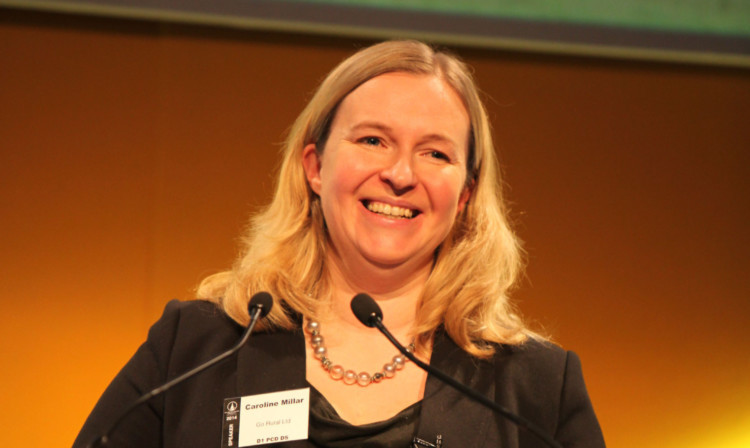Most people spend their fortieth birthday either reflecting quietly or celebrating wildly, writes Ewan Pate, farming editor, in Oxford.
Caroline Millar, from Balkello at Auchterhouse, near Dundee, marked the event differently, by taking to the podium at the Oxford Farming Conference.
She asked the delegates to consider the proposition that diversified income would exceed farming income across much of the UK within the next 10 years.
Caroline’s view is informed not only by her own experience in running the Hideaway Experience luxury accommodation at Balkello, but also by a recently completed Nuffield Scholarship which has taken her around the world.
The Hideaway Experience selfcatering business was launched by Caroline and her husband Ross only four years ago.
“It only occupies one-sixth of an acre but it has a comparable turnover to our farming business, makes more profit and has had no impact on the farming enterprises,” she said.
This was important in a country such as Scotland where, Caroline maintained, the majority of farmers made a loss before Single Farm Payment.
There was, however, resistance to diversification with many farmers saying ‘If I diversify I will not be a real farmer’.
This was the wrong approach, she said, and opportunities were being missed especially for those who wanted to involve family members.
“The key person is often not the farmer but more likely the farmer’s wife, daughter or son. Forward-looking people are now letting family members use part of the farm asset to create a new enterprise,” she said.
One of the advantages of this approach was that the value of the asset could be used to secure finance.
Such an approach could, if used wisely, be part of succession planning, but not everyone was prepared to accept this.
“It depends on the older generation wanting to see the next generation doing well, but sadly that is not always the case,” she cautioned.
If the will was there, however, there were huge opportunities and, in Caroline’s view, agri-tourism and food tourism are about to soar as the public seeks to find out more about farming.
“Agri-tourism has many forms. I saw a case in Australia where people were happy to spend $200 just to be with a farmer for a couple of hours and hear about his work,” she said.
“But remember you will be entering the hospitality business, and if you are grumpy or your wife is grumpy this will not be for you.
“It is a case of being on duty 24 hours a day, seven days a week, and always being friendly and charming.”
